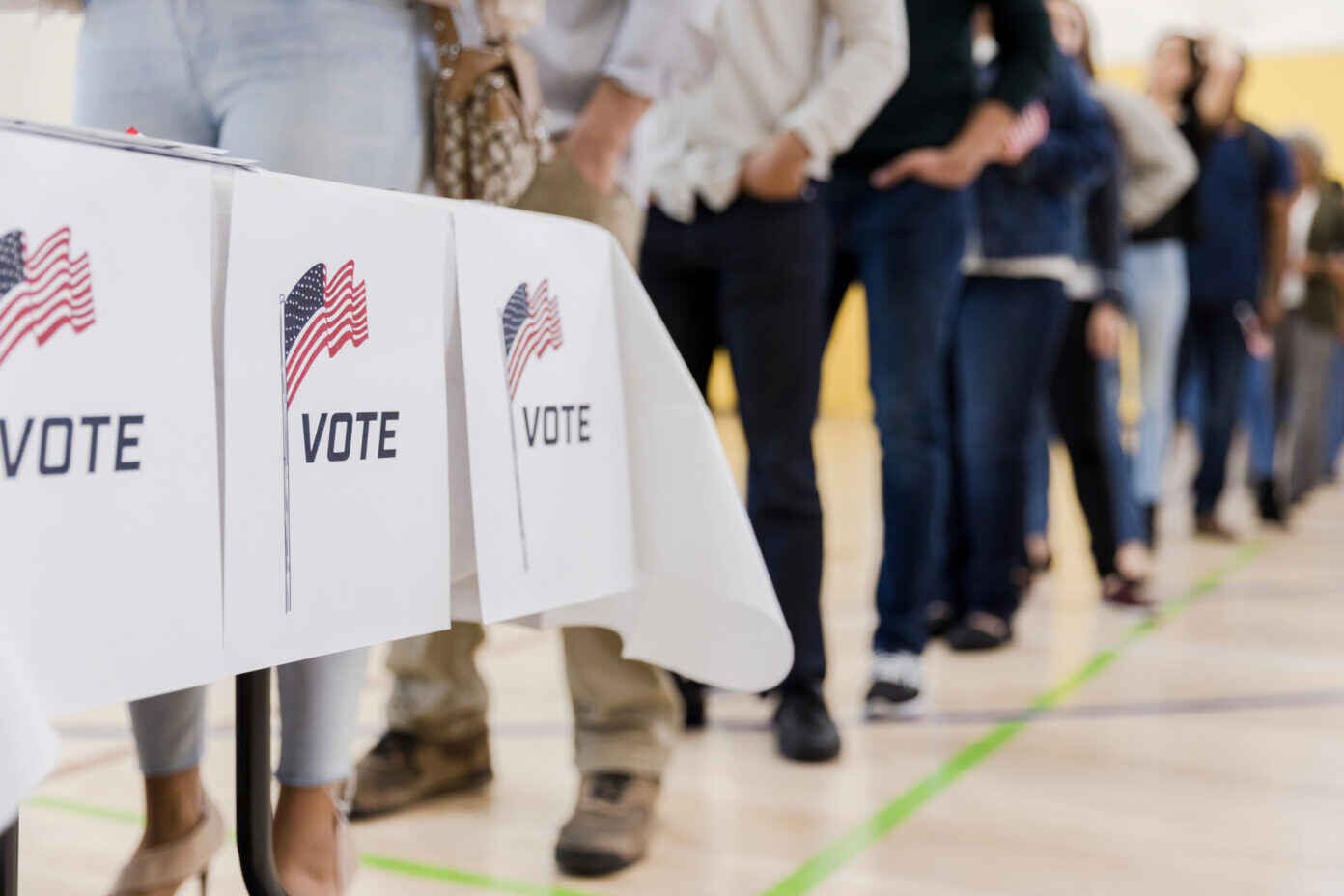Advancing Health Equity Through Voter Participation
August 25, 2022
Overview
Our health and the health of our democracy are deeply connected. When people vote, they exercise their voice on decisions that have a big impact on their health and the health of their family and neighbors. Analysis from the Health & Democracy Index shows a clear relationship between inclusive voting policies and better health outcomes: States with more inclusive voting policies and greater levels of civic participation are healthier; states with exclusionary voting laws and lower levels of civic participation are less healthy.

Our health and the health of our democracy are deeply connected. Inclusive, robust democratic processes are vital to creating the opportunity for everyone to be healthy. Voting is an important way to promote health in communities. When people vote, they exercise their voice on decisions that have a big impact on their health and the health of their family and neighbors. The Network for Public Health Law is a member of the Healthy Democracy Healthy People coalitionand has partnered to publish a Health & Democracy Index that analyzes states’ voting policies in relationship to community health outcomes. The analysis in the Index shows a clear relationship between inclusive voting policies and better health outcomes. States with more inclusive voting policies and greater levels of civic participation are healthier. The opposite is also true, states with exclusionary voting laws and lower levels of civic participation are less healthy.
Collectively, we can strengthen public health and civic participation by promoting inclusive voting policies that encourage voter participation. Policymakers can make it easier for voters to register or update their registration through a variety of programs and services. Public health professionals can ensure their communities are registered to vote and understand their options for casting their ballots.
Many states have changed their election laws over the past two years, so it’s important that voters understand their state’s current voting policies and procedures. One of the resources health departments and other public health professionals can use to promote voting this November are the Healthy Voting Guides. The Guides are an excellent tool to use when making a plan to vote that helps voters navigate state specific voting laws leading up to and on Election Day. The guides include tips for voting by mail, early, or in person on Election Day, along with important information on voting deadlines and who to contact if people have questions about voting procedures. The guides come in Spanish and English.
Our health and wellbeing are dependent upon creating a society where everyone, everywhere has the opportunity to be healthy. As public health professionals dedicated to health and racial equity, we have a role in creating an inclusive society that makes it possible for all to participate in decisions that shape health and well-being.
Strengthening democratic processes and assuring access to civic and voter participation is necessary to advance health and racial equity.
This guest post was written by Jeanne Ayers, Executive Director of Healthy Democracy Healthy People.
The Network for Public Health Law provides information and technical assistance on issues related to public health. The legal information and assistance provided in this document do not constitute legal advice or legal representation. For legal advice, readers should consult a lawyer in their state. Support for the Network is provided by the Robert Wood Johnson Foundation (RWJF). The views expressed in this post do not represent the views of (and should not be attributed to) RWJF.
